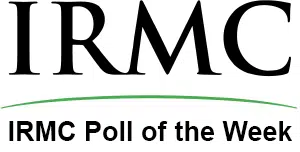With the 60-day public comment period underway regarding Governor Tom Wolf’s executive order for Pennsylvania to join the Regional Greenhouse Gas Initiative, or RGGI, state leaders are wasting no time in voicing their concerns over this matter.
One is Senator Joe Pittman, as he presented to the Department of Environmental Protection’s Environmental Quality Board (EQB) with his main focus being the damaging effects RGGI poses on area jobs and school districts. In his testimony, Pittman called the initiative “counterintuitive” and said that while carbon must be emitted to produce revenue, the proposed tax will make the power plant marketplace uncompetitive, resulting in the potential loss of thousands of jobs – especially in the Armstrong and Indiana counties.
Pittman also adds that power plants under his representation pay more than $5 million annually in property taxes, but if they were to close, that could force area school districts to either make significant cuts in educational opportunities or – worse – close completely.
Public comments will continue to be taken from now until January 14th, and those looking to submit comments can email RegComments@pa.gov. Emails should have a subject heading of “CO2 Budget Trading Program”, along with a return name and address. They are also accepted by regular mail at: Environmental Quality Board, P.O. Box 8477, Harrisburg, PA 17105-8477.
You can also view the rest of Senator Pittman’s testimony below:
From the office of Senator Joe Pittman (12/15/20; 9:05 a.m.)
“Fourteen months ago, Governor Wolf issued his executive order to unilaterally join Pennsylvania into the Regional Greenhouse Gas Initiative. The stated attempt is to reduce carbon emissions from electric generation facilities while affixing a price for the privilege of emitting carbon in the process of generating electricity. In other words, the Governor wants to tax carbon emitting power plants in Pennsylvania and reduce carbon emissions while using the proceeds to address impacts on ‘affected communities.’
“As the Senator representing power plants with the capacity to produce nearly 6000 MW of electricity, there are no communities in the Commonwealth more affected by this proposed carbon tax than those I represent. My concerns with this proposal are both in substance and process.
“Substantively, this scheme is counterintuitive. For RGGI to produce revenue, carbon must be emitted. Yet the proposed tax will make the power plants uncompetitive in the marketplace, causing them to close. Therefore, carbon emission taxes won’t be paid, the power plants will shutter and the revenue for ‘affected
communities’ will be a mirage. If Pennsylvania’s fleet of carbon emitting power plants – both coal and natural gas – become uncompetitive and close, the economic devastation to the region I represent will be massive.
“We are part of a 13-state power grid and every MW of power we take offline gets produced by another state not in RGGI. In this case, mainly Ohio and West Virginia. Trade unions rely on power generation to employ their members in family sustaining jobs and they will point to other carbon emitting facilities in states to the west that are making significant investment in facilities to replace the supply of electricity RGGI will cause us to forfeit. Ceding our status as an exporter of electricity to other states is nonsensical.
“The obvious impacts of not producing power in Pennsylvania are the loss of thousands of family sustaining jobs at power plants that will cease operation – especially in Armstrong and Indiana Counties.
“The less obvious impacts are the loss of thousands of family sustaining jobs in mining, transportation and skilled trades that are necessary to supply these plants with fuel and provide necessary maintenance. These job losses will span across western Pennsylvania extending the economic devastation of the carbon tax and be borne largely by blue collar union wageworkers and their families.
“The power plants I represent also pay nearly $5 million annually in property taxes. If these plans are prematurely retired by RGGI, school districts in my area will be forced to make significant cuts in educational opportunities, or close completely. This will be the most devastating impact of RGGI as it will serve to deny students I represent of a free and equal education compared to their peers in the rest of the Commonwealth.
“These devastating economic impacts are why all three of DEP’s advisory committees rejected this regulation. And despite words of concern from the Governor, the regulation before you has gone unchanged since the time it was first presented. There has been no sincere and concerted effort to address the economic impacts of this regulation.
“The perception by those I represent is that the Governor has not taken seriously our concerns about the livelihoods jeopardized by RGGI. Based on the way this regulation is being fast tracked and how the comments of the three advisory committees have been ignored, I can only conclude the perception of my constituents is the sad reality.
“The most impacted communities happen to be in rural areas, with limited internet access. The most impacted residents happen to be those with full time jobs that require them to be at work during the times and dates of these hearings.
“Yet there has been no effort during this public comment process to allow those most impacted by this regulation to have their voices heard in a format that would allow them to be presented at a public hearing in the most affected communities.
“I recognize the pandemic has created challenges in receiving testimony. The pandemic has also created economic hardship. Given these factors, the Governor’s approach should not be to jam this regulation through. Instead he should take a step back, address the concerns each advisory panel brought forward, hear personally from the constituents most impacted and work to come up with real and concrete plans to replace thousands of jobs and the loss of funding to public schools BEFORE its submission for approval by the Independent Regulatory Review Commission.
“Words of support are not enough and this regulation needs redrawn to address these issues in collaboration with the elected officials who represent affected communities.”






